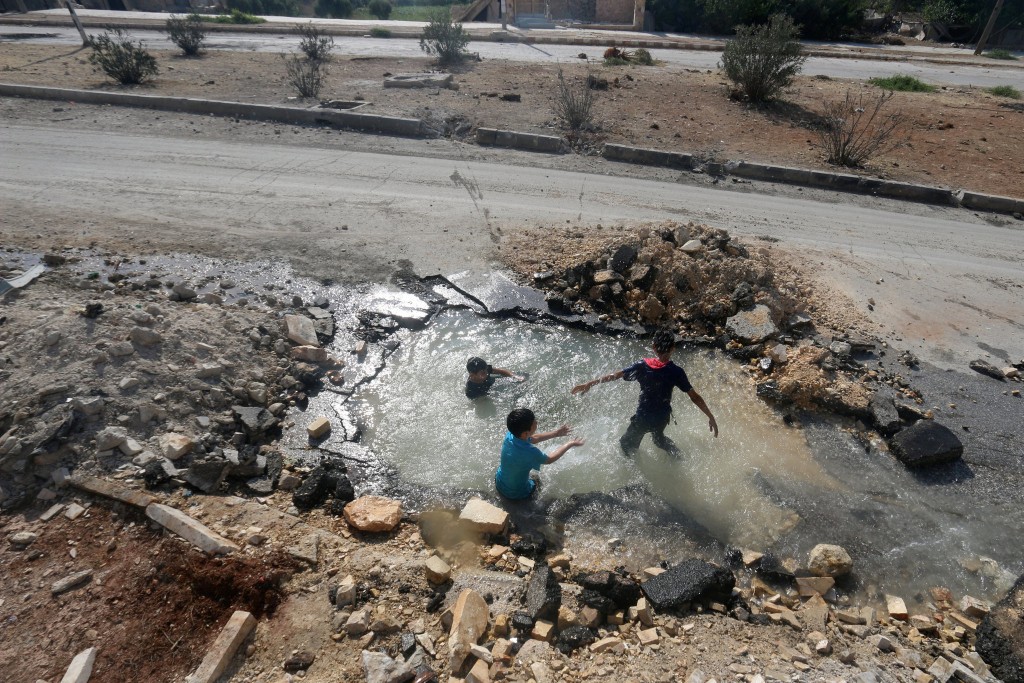
If you have been paying any attention to the major headlines in the news these past few weeks, you have likely seen the devastation in Aleppo, Syria. Aleppo, formerly Syria’s largest commercial city, has been a major point of contention between the Syrian government and Syrian rebel forces.
The city has been under siege by government forces since the Free Syrian Army retook the eastern portion of Aleppo in 2012. The Syrian government has stepped up its siege, however, utilizing Russian air support as well as its own in an attempt to bomb the rebel-held section of Aleppo into submission. Civilians, hospitals, and first responders have been targeted directly through these attacks.
In particular, Russia has been using bunker buster ordinance to destroy underground shelters and hospitals utilized by civilians. In this week alone, nearly four hundred people have been killed in Syria and Russia’s bombing of Aleppo, including over one hundred children. The total number of deaths from the Aleppo from the past few years are somewhere in the tens of thousands. This number is only increasing.
The situation in Aleppo has been condemned by the UN, especially Russia’s involvement, but the situation only worsens. The horrible conditions in Aleppo have led to people making statements like “We live in the most violent age of human history.” Yet when one actually looks back at human history, he or she will see that civilians have never been safe in times of war. In fact, despite what the situation in Aleppo might suggest, the 21st century is the safest time for civilians yet.
In the ancient world, the civilians of a captured city had two fates. Civilians would either be sold into slavery by the thousands, or they would be raped and killed.
For instance, in Alexander the Great’s campaign against the Persian Empire, the young commander set upon the city of Tyre in 332 BCE. Although Alexander’s army outnumbered Tyre’s garrison by about five to one, Tyre’s defenders held out against Alexander’s siege for seven months. Outraged by the extended siege and the loss of his men, Alexander slaughtered all the defenders and sold the remaining 30,000 civilians in Tyre into slavery. This practice would last well into the early medieval period.
It is also interesting to note that siege engines such as catapults, ballista, onagers, and trebuchets, whose purpose was to hurl large chunks of often flaming material over stone walls upwards of sixty feet tall often hit civilian populations indiscriminately.
For instance, the siege of Carthage by Roman forces in the Third Punic War lasted for almost three years. In this three-year period, hundreds of thousands of projectiles were launched by Roman siege engines. By the time the city fell in 146 BCE, the walls were reduced to rubble, many of the city’s buildings were destroyed, and a large portion of the civilian population was dead. In accordance with ancient practice, most of the defenders were killed, tens of thousands of people were sold into slavery, and the city itself was razed to the ground.
All of this to say, the current situation in Aleppo is terrible and deplorable. The civilians trapped within the city are exposed daily to a horror that no one should have to experience. Yet it is important to note that many strides have been made in the modern era to protect civilians in times of war. There was no UN to advocate for the Carthaginians. There was no news outlet that abhorred the butchering of the citizens of Tyre.
While the modern age has brought us bunker busters, so too has it brought us international diplomacy and the establishment of universal human rights. Do not be so quick to forsake our time.
Lee Shaw is a junior majoring in professional writing and the current editor of The Mug.
Sources